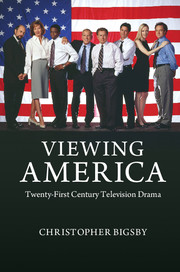Chapter Two - The Sopranos (HBO 1999–2007)
Published online by Cambridge University Press: 05 June 2014
Summary
The function of an hour drama is to reassure the American people that it's O.K. to go out and buy stuff. It's all about flattering the audience, making them feel as if all the authority figures have our best interests at heart. Doctors, lawyers, psychiatrists: sure, they have their little foibles, some of them are grouchy, but by God, they care.
So what's ‘The Sopranos’ about?
It's not about that.
David ChaseMob theme stories are always hot.
Amy Safir, Development Girl in The SopranosThe Mafia, as a national power, was disintegrating as surely as a species of blighted trees.
Bill BonannoIn 1999 Bill Bonanno published a book entitled Bound by Honor, an echo of his father's autobiography, Man of Honor. It was dedicated to that father – ‘For the example of his life’, a man ‘who throughout it all remained scrupulous to his principles’ – and to his wife to whom he had been married for forty-three years. That father, Joseph, was the head of a Mafia family who had had a child by another woman. Somehow the words ‘honor’ and ‘principles’ seemed to have acquired a specialised meaning. For Bonanno, the Mafia simply represented another immigrant group finding a way of gaining a purchase on a new country:
[T]he Sicilians, like the Irish, the Germans, the Poles, and the Russians, eventually shed their old-world ways and joined the market economy…The Mafia, like a successful American corporation, threw itself into the market economy, devoting itself exclusively to profit…Everything I learned in my life in the Mafia grew out of tradition. I am an American…Strength, to me, is about the way people are connected to one another. Honor and respect are meaningful to me in the sense that they form the basis of all relationships, whether they are political or personal.
- Type
- Chapter
- Information
- Viewing AmericaTwenty-First-Century Television Drama, pp. 67 - 106Publisher: Cambridge University PressPrint publication year: 2013



